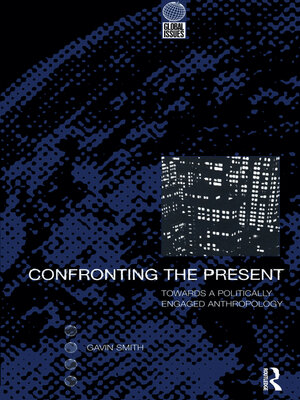Confronting the Present
ebook ∣ Towards a Politically Engaged Anthropology · Global Issues
By Gavin Smith

Sign up to save your library
With an OverDrive account, you can save your favorite libraries for at-a-glance information about availability. Find out more about OverDrive accounts.
Find this title in Libby, the library reading app by OverDrive.



Search for a digital library with this title
Title found at these libraries:
| Library Name | Distance |
|---|---|
| Loading... |
Anthropologists study other people and worry about it. In the past this took the form of a professional desire to make our politics always somewhere else and to do with persons characterized as in some way different from ourselves. Now distances shrink and old forms of difference melt as global forces give rise to new processes of differentiation and new possibilities for political collectivities. How does this affect the way we might design a politically relevant anthropology? This book examines these concerns in light of the author's shift from the study of rather distant people to people and places closer to home - a trend to be found within the discipline as a whole. How should anthropology respond to this change, as it increasingly finds itself in stamping grounds where other disciplines are already well-entrenched? How will work being done in anthropology intersect with that in other disciplines? Will anthropologists have anything to offer debates that have been ongoing in these other disciplines, such as those relating to social citizenship and collective identity, regionalism and the constitution of space and place, hegemony and resistance, political organization and cultural expression? Conversely, what can anthropologists learn from the way other disciplines formulate these issues and problems?Written to provoke discussion, this timely book aims to initiate a dialogue not only with anthropologists, but also with those in related disciplines who share a concern with people, politics and modernity. As well as anthropologists, the issues it tackles will be of interest to geographers, economists, political scientists, social historians and sociologists.







